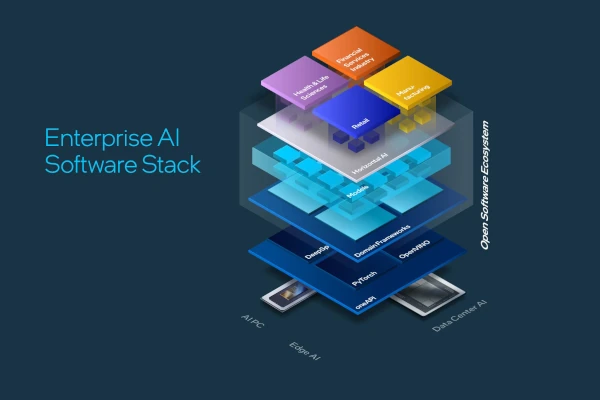PWC recently released a study determining “six AI priorities you can’t afford to ignore.” Businesses should take heed to PWC’s advice since it will most likely guarantee successful AI integration:
“Those companies focusing their efforts in the following six key areas will be far ahead of other businesses this time next year.”
The study queried 1,000 US business executives at companies to assess their current AI integration status. 20% said their “organizations plan to implement AI enterprise-wide in 2019.”
Why is AI integration so important for business success? It is estimated by 2030 that AI implementation will contribute $15.7 trillion to the global economy- not exactly a fact for companies to ignore.
The first step for companies to excel in is “AI is Structure: Organize for ROI and momentum.” Businesses want reusable AI building blocks to be used across organizations to simplify tasks and help increase ROI:
“If done right, developing an AI model for one specific task can enhance an existing process or solve a well-defined business problem, while simultaneously creating the potential to scale to other parts of the enterprise.”
The right AI foundation is also critical for effective AI integration. It requires a team that includes individuals who have business, IT and specialized AI skills and are representive of all parts of your organization.
“Workforce: Teach AI citizens and specialists to work together” involves a workforce consisting of three levels of AI-savvy employees, citizen users, citizen developers, data scientists, and provides ways for all three to work together successfully. Identifying new job skills and roles is part of solving the AI equation.
“Trust: Make AI responsible in all its dimensions” is a idea that determines how AI affects privacy, cybersecurity, employment, inequality and the environment concerns. Therefore executives top priority for 2019 is if AI systems are considered trustworthy. There are six criteria for guaranteeing this goal: Fairness, Interpretability, Robustness and security, Governance and System ethics.
“Data: Locate and label to teach the machines,” a fourth AI priority explains the importance of creating the data sets needed for training and the necessity of labeling the data . One of the top AI-related data priorities for 2019 is to combine AI and analytics systems to obtain business insights from data: “AI can be used with data and analytics to better manage risk, help employees make better decisions, automate customer operations and more.” An AI CoE ensures creation of usable, labeled data sets for AI use: “For those data sets to help support AI across the enterprise (those consumers may interact with more than one business line), you’ll need standards for labeling them consistently.”
“Reinvention: Monetize AI through personalization and higher quality,” in a nutshell is that “the majority of AI’s economic impact will come from the consumption side, through higher-quality, more personalized and more data-driven products and services. Healthcare, retail and automotive could see the most immediate benefits, according to our analysis of more than 300 AI use cases.”
“Convergence: Combine AI with analytics, the IoT and more,” a top AI challenge for 2019, approximately 36% of the executives surveyed agreed: “Helping advanced, predictive and streaming analytics further evolve with AI is a common priority. This convergence can make new data-driven business models more powerful.”




